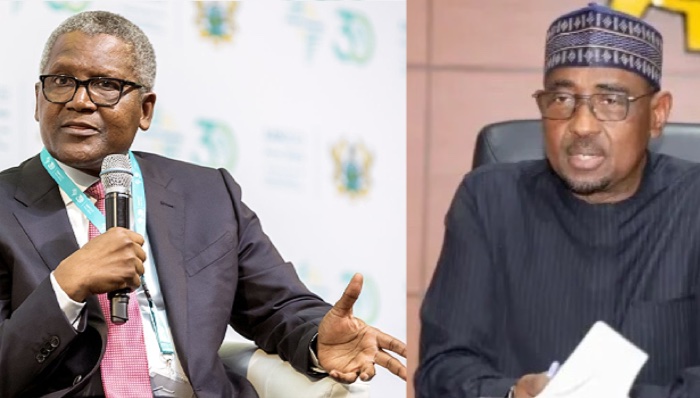
Aliko Dangote, Africa’s richest man, has refuted allegations by the Nigerian Midstream and Downstream Petroleum Regulatory Authority (NMDPRA) that his refinery’s petroleum products are substandard.
During a visit to the refinery in Lagos by lawmakers, Dangote countered claims made by NMDPRA CEO Farouk Ahmed that local refineries, including his own, were producing diesel with quality levels between 650 and 1,200 PPM, which is far inferior to imported products.
The delegation, led by House Speaker Tajudeen Abbas and his deputy Benjamin Kalu, observed a credibility analysis at the refinery’s laboratory. The test showed the diesel, known as AGO, had a measurement of 87.6 parts per million (PPM). ECOWAS regulations set the limit for imported diesel at 50 PPM and for locally produced diesel at 200 PPM until December 2024, with stricter standards starting January 2025.
Dangote invited the regulator to conduct tests at any time, guaranteeing that the PPM would be below 10. The delegation also toured the automated control room, where operations are monitored and managed, with diesel production facilitated by the Mile Hydrocracking Unit. Dangote noted that the NMDPRA accredited the refinery’s laboratory in March 2024.
Speaker Abbas expressed surprise at the conflicting statements from the NMDPRA, which had certified the refinery’s operations as compliant, and the Nigerian National Petroleum Company’s (NNPC) reported dissatisfaction with the product quality. Abbas called for an investigation into these contradictions. Dangote suggested that some laboratories were influenced to produce specific results and proposed an independent approach where samples are purchased from various filling stations for unbiased testing.
When asked if he would agree to further tests, Dangote proposed that a team, including the CEO of NMDPRA and a representative from his refinery, should test samples from different filling stations for accuracy and transparency.
The Dangote refinery is set to achieve a production level of 550,000 barrels per day (bpd) this year, representing 85% of its total capacity. However, due to insufficient domestic crude supplies, the refinery has been relying more on crude imports. Despite the NNPC’s agreement to supply 300,000 bpd, only five crude cargoes have been received since operations began earlier this year, prompting the refinery to purchase crude from Brazil and the US at a $4 mark-up per barrel from brokers.
Constructed at a cost of $20 billion, the Dangote refinery, the largest in Africa, began production in January after several years of delays. It is poised to significantly enhance Nigeria’s refining capacity and reduce dependency on imported petroleum products.